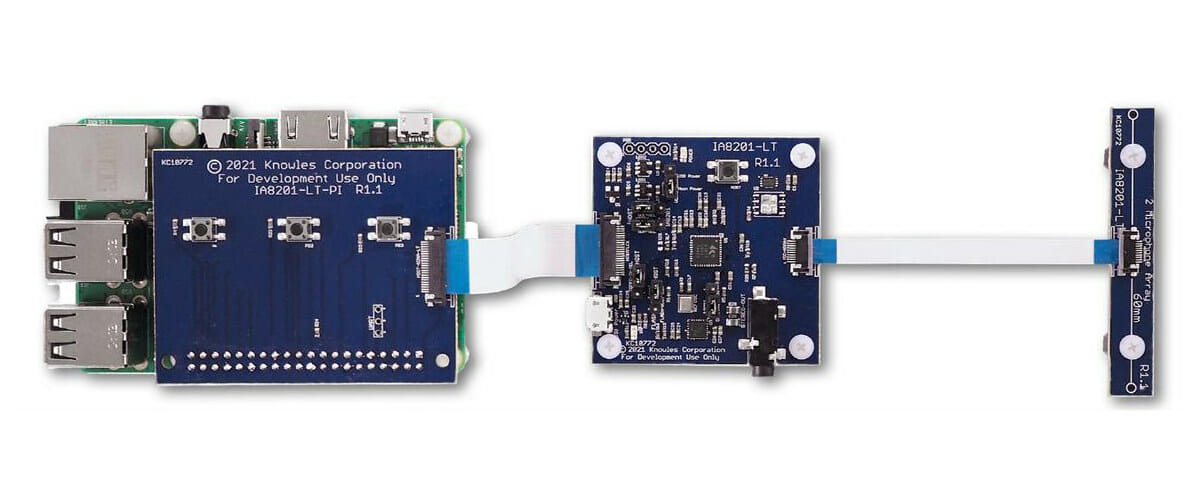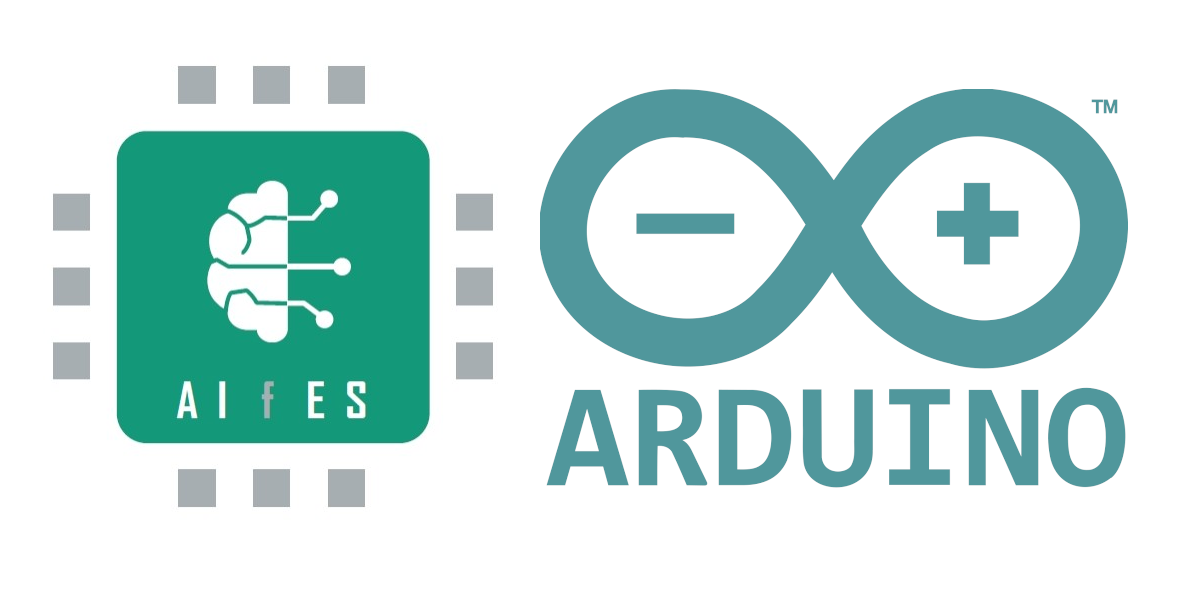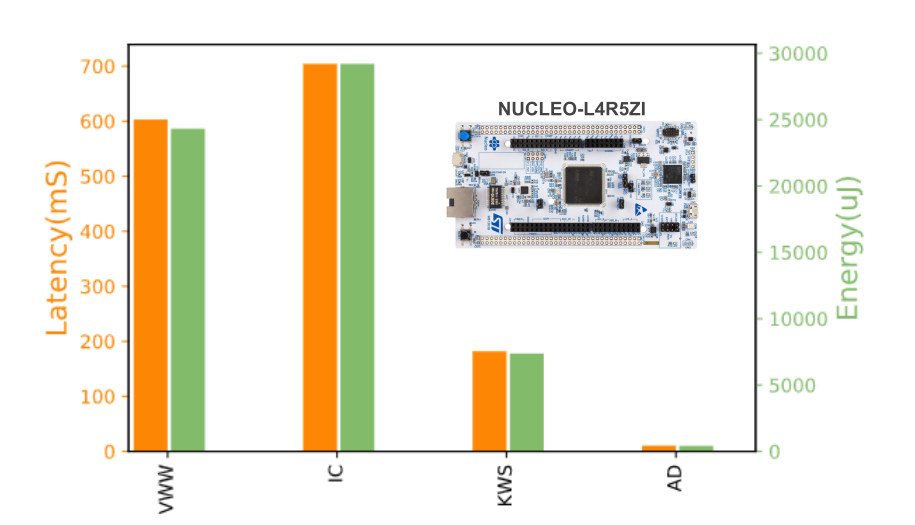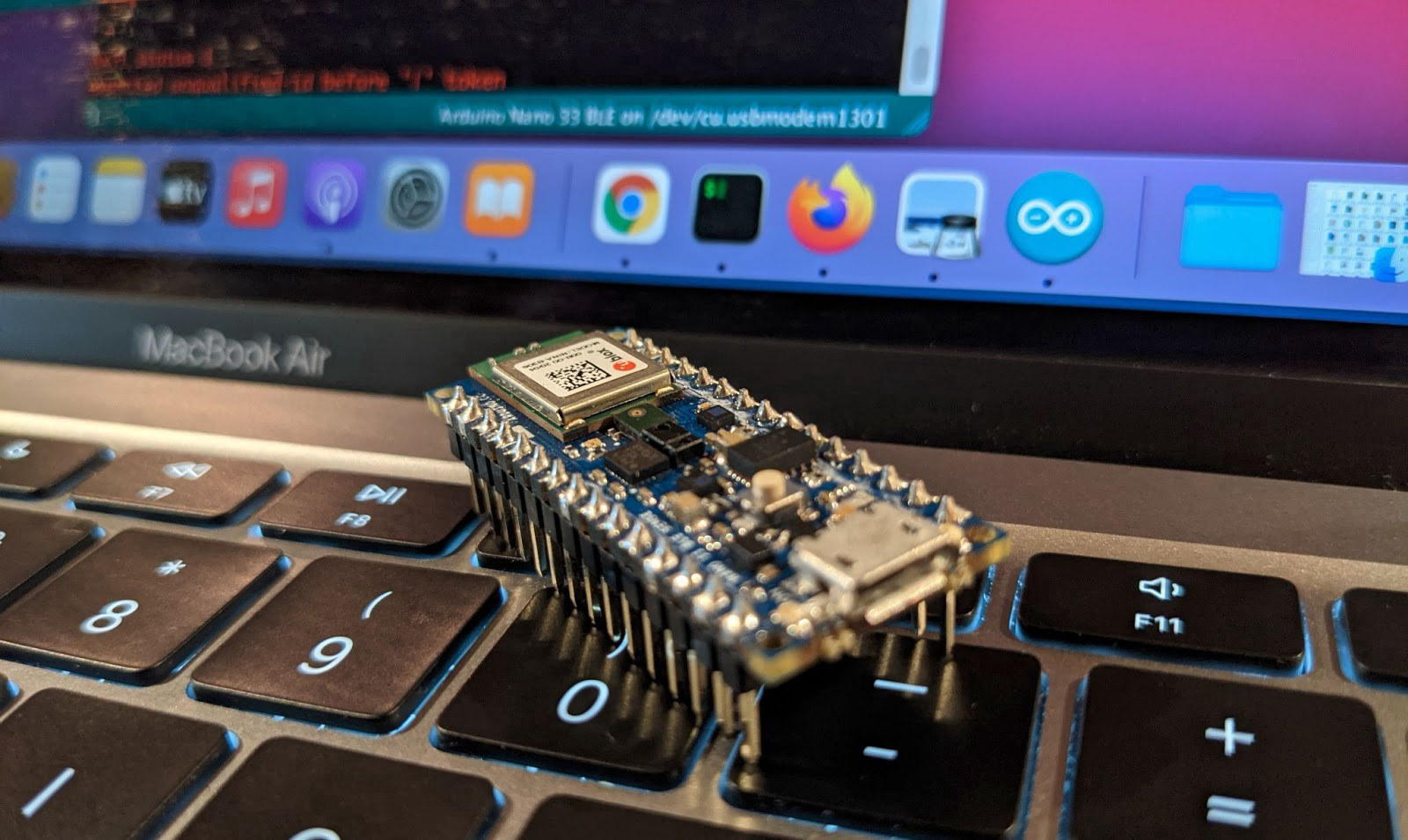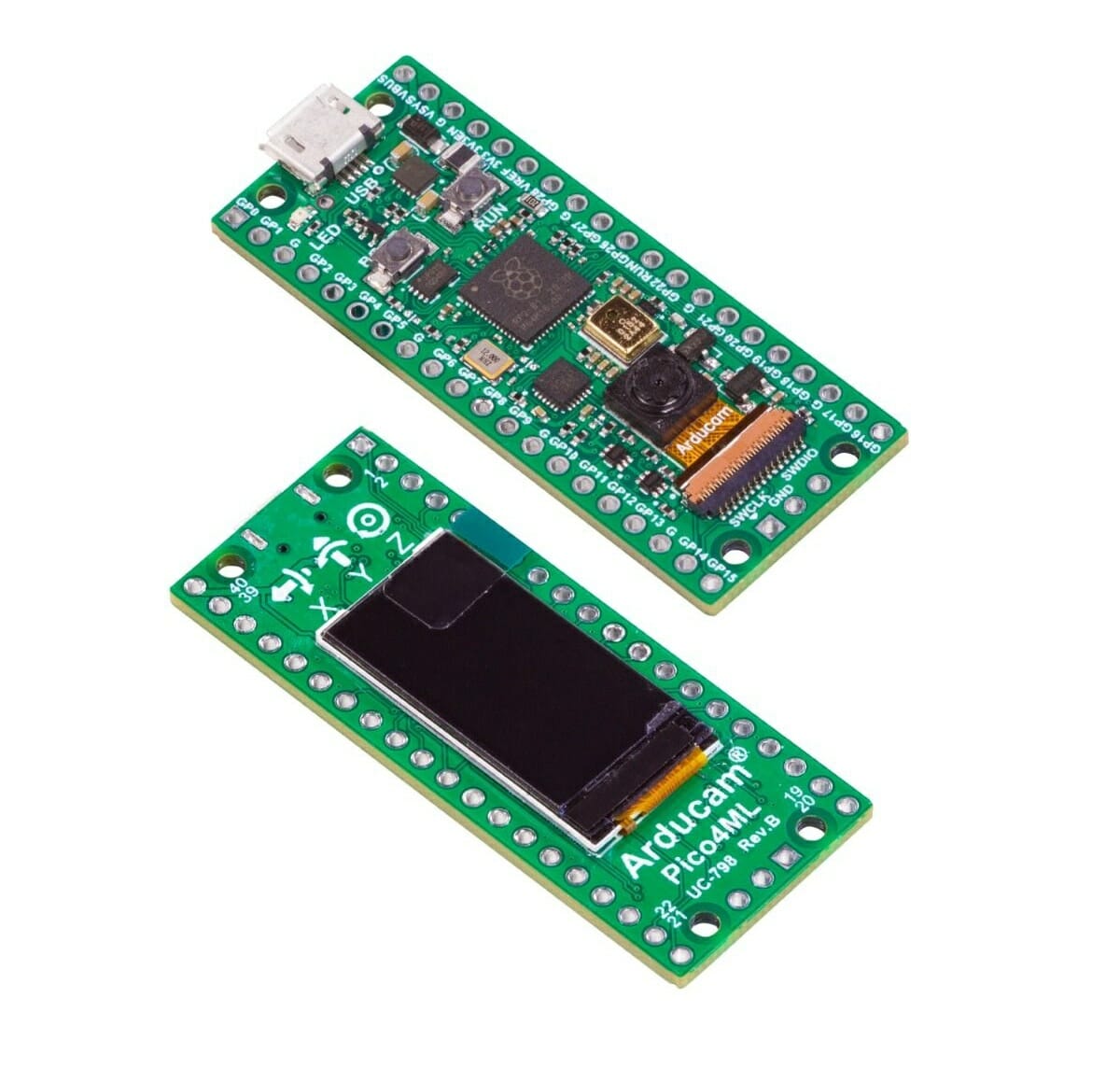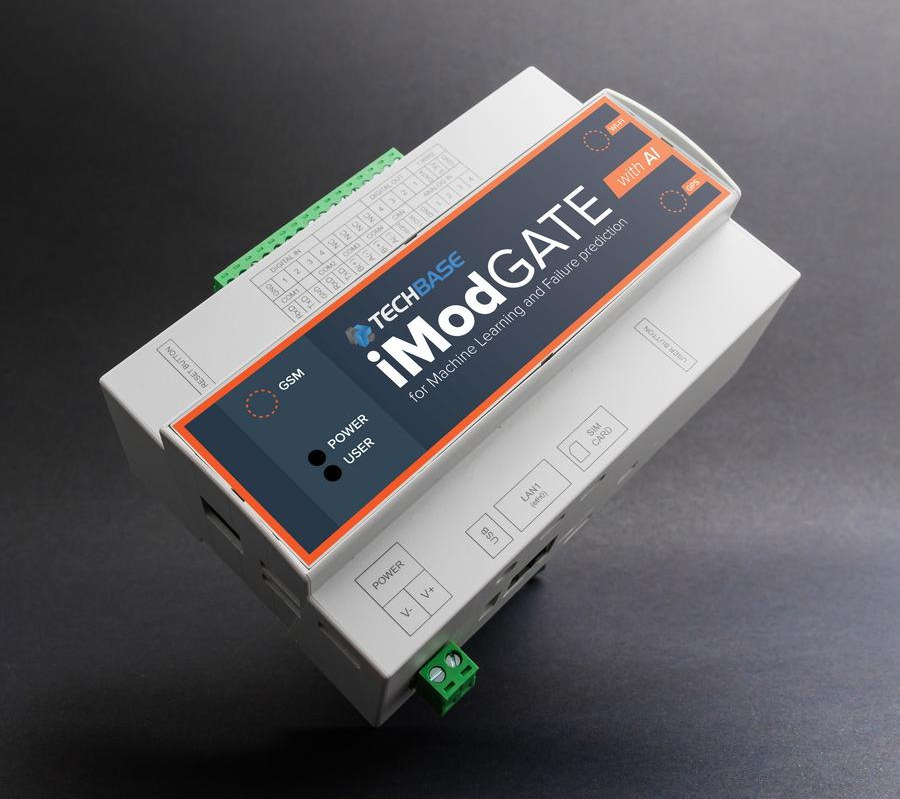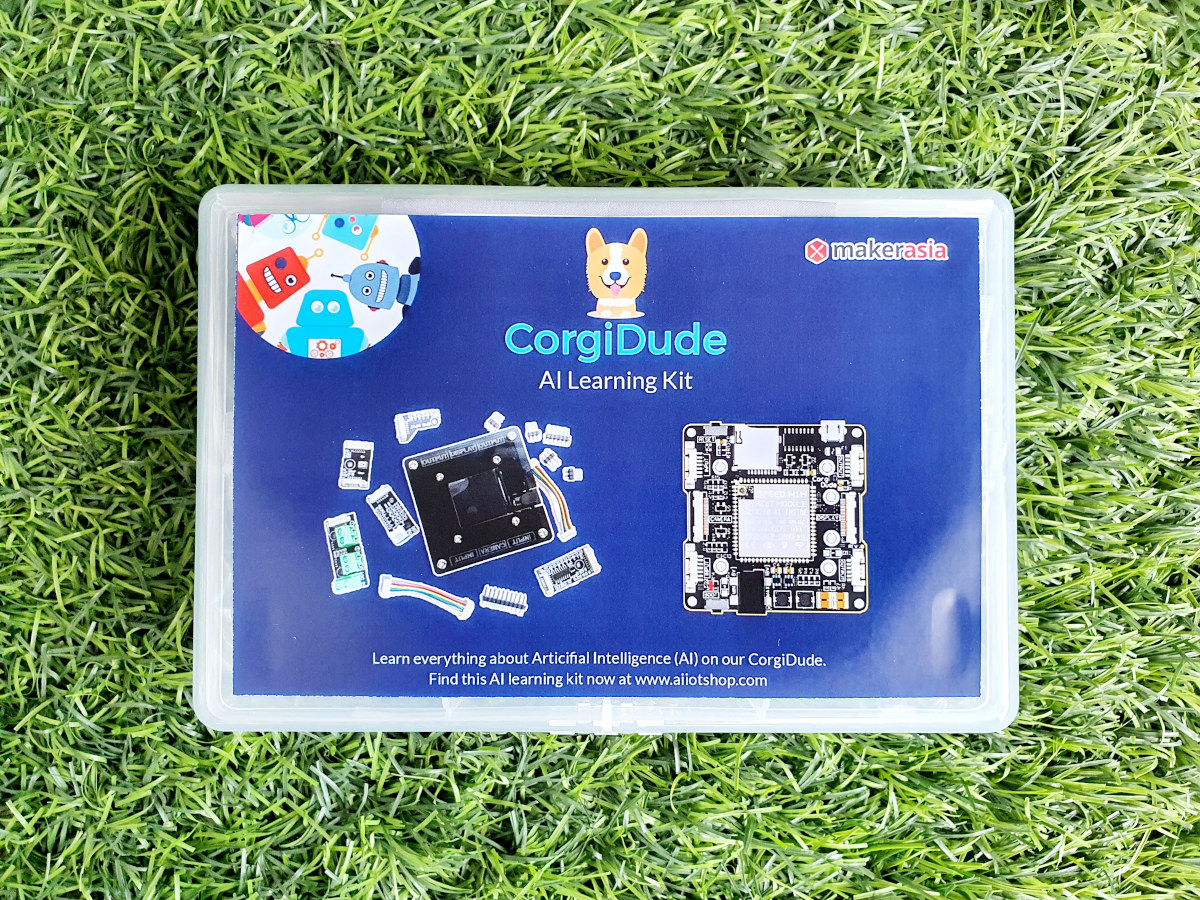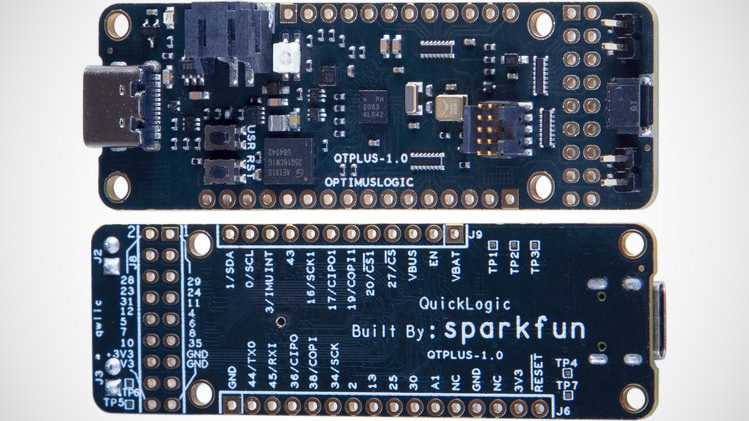Knowles AISonic IA8201 Raspberry Pi development kit is designed to bring voice, audio edge processing, and machine learning (ML) listening capabilities to various systems, and can be used to evaluate the company’s AISonic IA8201 DSP that was introduced about two years ago. The kit is comprised of three boards with an adapter board with three buttons connecting to the Raspberry Pi, as well as the AISonic IA8210 DSP board itself connected via a flat cable to a microphone array. Knowles AISonic Raspberry Pi development kit Knowles did not provide the full details for the development but says it enables wake-on-voice processing for low latency voice UI, noise reduction, context awareness, and accelerated machine learning inferencing for edge processing of sensor inputs. Some of the use cases include Low Power Voice Wake to listen for specific OEM keywords to wake the host processor, Proximity Detection when combined with an ultrasonic capable […]
AIfES for Arduino high-efficiency AI framework for microcontrollers becomes open source
AIfES (AI for Embedded Systems) is a standalone, high-efficiency, AI framework, which allows the Fraunhofer Institute for Microelectronic Circuits and Systems, or Fraunhofer IMS for short, to train and run machine learning algorithms on resource-constrained microcontrollers. So far the framework was closed-source and only used internally by Fraunhofer IMS, but following a collaboration with Arduino, AIfES for Arduino is now open-source and free to use for non-commercial projects. The framework has been optimized to allow 8-bit microcontrollers such as the one found in Arduino Uno to implement an Artificial Neural Network (ANN) that can be trained in moderate time. That means offline inference and training on small self-learning battery-powered devices is possible with AIfES without relying on the cloud or other devices. The library implements Feedforward Neural Networks (FNN) that can be freely parameterized, trained, modified, or reloaded at runtime. Programmed in C language, AIfES uses only standard libraries based […]
Benchmarking TinyML with MLPerf Tiny Inference Benchmark
As machine learning moves to microcontrollers, something referred to as TinyML, new tools are needed to compare different solutions. We’ve previously posted some Tensorflow Lite for Microcontroller benchmarks (for single board computers), but a benchmarking tool specifically designed for AI inference on resources-constrained embedded systems could prove to be useful for consistent results and cover a wider range of use cases. That’s exactly what MLCommons, an open engineering consortium, has done with MLPerf Tiny Inference benchmarks designed to measure how quickly a trained neural network can process new data for tiny, low-power devices, and it also includes an optional power measurement option. MLPerf Tiny v0.5, the first inference benchmark suite designed for embedded systems from the organization, consists of four benchmarks: Keyword Spotting – Small vocabulary keyword spotting using DS-CNN model. Typically used in smart earbuds and virtual assistants. Visual Wake Words – Binary image classification using MobileNet. In-home security […]
Picovoice offline Voice AI engine now works on Arduino
Last year, I wrote about Picovoice support for Raspberry Pi enabling custom wake-word and offline voice recognition to control the board with voice commands without relying on the cloud. They used ReSpeaker 4-mic array HAT to add four “ears” to the Raspberry Pi SBC. I also tried to generate a custom wake-word using the “Picovoice Console” web interface, and I was able to use “Dear Master” within a few minutes on my computer. No need to provide thousands of samples, or wait weeks before getting a custom wake-word. It’s free for personal projects. But the company has now added Picovoice to Arduino, or more exactly Arduino Nano 33 BLE Sense powered by a Nordic Semi nRF52480 Arm Cortex-M4F microcontroller, and already equipped with a digital microphone, so no additional hardware is required for audio capture. To get started, you’d just need to install the Picovoice Arduino library, load the sample […]
Arducam Pico4ML Board – TinyML on Raspberry Pi RP2040 with QVGA Camera & Display
A few months ago, ArduCAM demonstrated person detection on Raspberry Pi Pico with Arducam camera using TensorFlow Lite, and later we noted more work was being performed to bring machine learning to RP2040 platforms, notably with the development of Arducam Pico4ML board with a built-in camera and display. At the time, i..e last month, all we had were some renders of the board, but now Arducam Pico4ML pre-orders have launched for $49.99 on UCTRONICS and Tindie stores. Shipping is scheduled to start at the end of the month, so let’s have a closer look. Arducam Pico4ML TinyML devkit specifications: Microcontroller – Raspberry Pi RP2040 dual-core Cortex-M0+ MCU with 264 KB of embedded SRAM Storage – 2MB SPI flash Display – 0.96-inch LCD SPI Display (ST7735) with 160 x 80 resolution Camera – HiMax HM01B0 QVGA camera (320×240 @ 60fps) Audio – Built-in microphone Sensor – IDK ICM-20948 9-axis IMU (gyroscope, […]
Raspberry Pi CM4 based predictive maintenance gateway features Google Coral Edge AI accelerator
Techbase had already integrated the Raspberry Pi CM4 module into several industrial products including Modberry 500 CM4 DIN Rail industrial computer, ModBerry AI GATEWAY 9500-CM4 with a Google Edge TPU, and ClusBerry 9500-CM4 that combines several Raspberry Pi CM4 modules into a DIN Rail mountable system. The company has now announced another Raspberry Pi Compute Module 4 gateway – iModGATE-AI – specially designed for failure monitoring and predictive maintenance of IoT installations, which also embeds a Google Coral Edge TPU AI module to accelerate computer vision. iModGATE-AI gateway specifications: SoM – Raspberry Pi Compute Module 4 with up to 32GB eMMC AI accelerator – Google Coral Edge TPU AI module Video Output – HDMI port Connectivity – Gigabit Ethernet USB – USB 2.0 port Sensors – 9-axis motion tracking module with 3-axis gyroscope with Programmable FSR, 3-axis accelerometer with Programmable FSR, 3-axis compass (magnetometer) Expansion 2x 16-pin block terminal Advanced […]
Made in Thailand CorgiDude RISC-V AI board aims to teach machine learning
There’s a relatively small but active maker community in Thailand, and we’ve covered or even reviewed some made in Thailand boards including ESP8266 and ESP32 boards, a 3G Raspberry Pi HAT, and KidBright education platform among others. MakerAsia has developed CorgiDude, a board based on the version of Sipeed M1 RISC-V AI module with built-in WiFi, and part as a kit with a camera and a display used to teach machine learning and artificial intelligence with MicroPython or C/C++ programming. CorgiDude board specifications: AI Wireless Module – Sipeed M1W Module with Kendryte K210 dual-core 64-bit RISC-V RV64IMAFDC CPU @ 400Mhz with FPU, various AI accelerators (KPU, FFT accelerator…), 8MiB on-chip SRAM Espressif ESP8285 single-core 2.4 GHz WiFi 4 SoC plus IPEX antenna connector Storage – MicroSD card slot Camera I/F for 2MP OV2640 sensor up to 1280 × 1024 (SXGA) @ 30 fosm SVGA @ 30 fps, or CIF @ […]
Sparkfun Thing Plus – Quicklogic EOS S3 Arm eFPGA board launched in Crowd Supply
SparkFun Electronics is a well-known electronics retailer that usually sells its in-house developed or third-party boards through its own online store. But this time around, the company decided to launch “Sparkfun Thing Plus – Quicklogic EOS S3” through Crowd Supply crowdfunding platform. The board is based on QuickFeather board designed with the same Quicklogic EOS S3 Arm Cortex-M4 plus embedded FPGA SoC, but follows Sparkfun’s Thing Plus form factor with a Qwiic connector and a different mix of sensors. Sparkfun Thing Plus – Quicklogic EOS S3 (QTPLUS-1.0) board specifications: SoC – QuickLogic EOS S3 MCU + eFPGA SoC with Arm Cortex-M4F Microcontroller up to 80 MHz, up to 512 Kb SRAM, and an embedded FPGA (eFPGA) with 2400 effective logic cells, 64 Kb RAM Storage – 16 Mbit SPI NOR flash (GigaDevice GD25Q16CEIGR) Sensors STMicro LIS2DH12TR accelerometer Digital pulse density modulation (PDM) microphone with Wake-on-Sound (WoS) feature: Vesper VM3011-U1 Expansion […]


